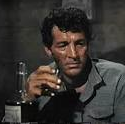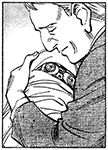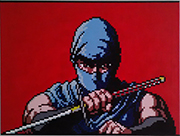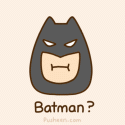|
Aquarium: the Career and Defection of a Soviet Military Spy, by Vladimir Bogdanovich Rezun writing as Viktor Suvorov. I'm a sucker for heists, cons, grifting, and espionage, whether real or fictional, and this does not disappoint. I do wonder if some of it has been embellished (beyond the shuffling around of names, dates and locations the author freely admits he did to protect his identity, and those of his acquaintances back in the USSR), but on the other hand I also know people got up to some crazy poo poo during the Cold War, and it's a good read regardless.
|
|
|
|

|
| # ? May 12, 2024 16:55 |
|
I just finished 2312 by Kim Stanley Robinson. Robinson has created a wonderful, fantastic universe to tell stories in. Unfortunately, he didn't tell a particularly good story in it. I loved the parts that were basically a travelogue of the solar system. Luckily, that's a big chunk of the book. I've been an astronomy nerd all my life, and this book made me look at these familiar old worlds in new ways. But the characters, for all the introspecting they do, don't feel terribly deep. And the plot, which is scattershot at the best of times, never really comes together in any kind of satisfying way. There's a strong mystery element in that for most of the book the reader is kept in the dark about what's really going on, but the revelation doesn't produce a whoa moment... instead it's more of an oh... okay. And then, once revealed, it all gets wrapped up fairly quickly, mostly in summary narration. Despite these flaws, it's a really interesting read, well worth picking up. I loved touring these worlds. I just wish a better story had happened on them. Powered Descent fucked around with this message at 08:21 on Oct 22, 2012 |
|
|
|
I finished The Second Empire, Paul Kearney A triumphant quasi-ending to the series, this is the fourth book of the Monarchies of God. This book concentrates largely on newly promoted Corfe’s battles to preserve the eastern-most of the Western kingdoms from Eastern domination. Think more the defence of Vienna against the Ottomans rather than a defence against Soviet aggression, although the action is in no way siege-based. Attack is the only form of defense in Corfe’s mind. This book (and the series) excels in ways that Erikson/Esselmont do not. The language is streamlined, but not over-economical; the books are concise, not much over 300 pages; and the character list is refreshingly short. You are not left scratching around in some dramatis personae to figure out if the character is in the IV company. Action is intense, and the fields of mass-battle are liberally smeared with major characters. This is no Belgariad. I heartily recommend this book, and the series, to readers of swords & sorcery fiction.
|
|
|
|
I just finished "A State of Disobedience" By Tom "Makes John Ringo Look like a Pinko" Kratman. It starts off with a man hating democrat lesbian becoming president of the United States and giving the federal agencies their own armies. The Surgeon Generals is used to assault and beat abortion protesters and then do a no knock raid and kill a Roman Catholic anti-abortion office in Texas. Then you have a redone Waco without the AFT at a Catholic Church. Then the Democrat female Hispanic Governor of Texas, rebels against Liberal She-Stalin and gets rid of taxes in Texas. Cue some dumb stuff marines army blah Big gov't evil civil disobedience good. when that doesn't work shoot the feds. All in all my brain now hurts. Why did I do this to my self. Edit: The amazon reviews are in some way more fun to read than the book. I picked it up because I thought it had sci-fi military fiction spaceships from the cover. What the author says about himself. In 1974, at age seventeen, Tom Kratman became a political refugee and defector from the PRM (People's Republic of Massachusetts) by virtue of joining the Regular Army. He stayed a Regular Army infantryman most of his adult life, returning to Massachusetts as an unofficial dissident while attending Boston College after his first hitch. Back in the Army, he managed to do just about everything there was to do, at one time or another. After the Gulf War, and with the bottom dropping completely out of the anti-communism market, Tom decided to become a lawyer. (Big mistake, way big. Chilluns don't do it.) Every now and again, when the frustrations of legal life and having to deal with other lawyers got to be too much, Tom would rejoin the Army (or a somewhat similar group, say) for fun and frolic in other climes. His family, muttering darkly, still puts up with this. Tom is currently an attorney practicing in southwest Virginia. A State of Disobedience is his first novel. Fallorn fucked around with this message at 20:31 on Oct 22, 2012 |
|
|
|
Okay, so I'm a huge Agatha Christie fan and I've been reading Partners in Crime, one of her short story books, featuring Tommy & Tuppence Beresford, two of her lesser known recurring detectives. I'm now going to blather on about the first five stories in the book at obscene length. Feel free to skip. Spoilers are hidden. A Fairy in the Flat/A Pot of Tea In the first two stories in Partners in Crime, Christie catches up with Tommy and Tuppence. Last seen heading off to be married, the couple has in some ways not been as successful as they might have expected. “Six years ago,” Tuppence muses, “I would have sworn that with sufficient money . . . and with you as a husband, all life would have been one grand sweet song.” “Is it me or the money that palls upon you?” Tommy asks in response. Soon enough, the pair is off on another adventure. Mr. Carter of the Intelligence Bureau sets them up in a detective agency that was being used as a front for a spy ring. The Beresfords are to run the detective agency normally, but also keep an eye out for any spylike correspondence that comes into the office. Tuppence isn’t satisfied yet, however, and when a young man brings them a case involving the fact that the girl he’s in love with has disappeared, Tuppence has a surprise up her sleeve for Tommy. It’s great to catch up to the Beresfords again and Christie instantly signals that she hasn’t lost the touch for their light humor. Tommy and Tuppence remain popular, at least with me, because of that light touch and the genuine wit Christie infused them with. None of Christie’s other detectives were quite so much fun. The Beresfords also seem very real. They aren’t geniuses, like Poirot, or philosophical students of human nature, like Miss Marple, or . . . well, whatever Harley Quinn is, they’re not that either. They’re just a couple of fairly clever people who form a genuine partnership. And with jokes too. DID I SOLVE IT? Well, it’s part of the fun of a mystery, isn’t it? So I intend to just straight up give you an up or down, a yes or no answer to the main question: Did I figure the mystery out prior to the reveal? And, of course, as part and parcel of that, did I actually have the opportunity to do so? On this one, the mystery only comes in at the end, so much time does Christie spend setting up Blunt’s Brilliant Detectives and the premise of the story. The solution is that the missing girl isn’t missing at all; Tuppence has asked her to pretend to be missing so that Blunt’s Brilliant Detectives will have its first case and, of course, be able to make a rousing success of it. Did I solve it? No. COULD I HAVE SOLVED IT? Did Christie play fair? She did. The revelation that the missing girl works in a hat shop is a major clue, considering just how heavily Christie has leaned on Tuppence going hat shopping and the revelation by the young man that the “missing” girl had pointed out the Blunt detective agency to him specifically the day before she disappeared? Dead giveaway, which, of course, I missed. Excellent work, Christie. Excellent work. The Affair of the Pink Pearl A valuable pink pearl has disappeared from the house of the Kingston-Bruce’s. Tommy and Tuppence are called in on the case and Tommy decides to imitate Dr. Thorndyke by lugging a camera around and being scientific about the whole thing. As if that wasn’t complication enough, Colonel Kingston-Bruce has heard about the “twenty-four hour” guarantee that Tuppence created in the last story. Of course, in that one, she already knew the solution; this time, the Beresfords are on a deadline without having any inside information. “Either the pearl is still in the house or it is not still in the house,” Tommy pronounces when pressed for progress on the case. In spite of himself, it’s Tommy who finds the solution, camera and all. This is a perfectly structured miniature Christie, for all the Thorndyke references. The list of suspects is lengthy and even in a story that only takes up two short chapters, Christie is able to drag plenty of red herrings across the trail. It’s in this story that Christie debuts her gimmick in full, which is that each story in the book spoofs another mystery author. While Tommy tries to ape Thorndyke in this story, the biggest laugh comes early in the story when he attempts to impress his client by channeling Sherlock Holmes, only to discover that neither his deductive reasoning nor his violin skills are quite up to the task. DID I SOLVE IT? Most assuredly not. Christie does a fantastic bit of work here with two red herrings. She drags them across the reader’s trail and leads the reader to believe that Tuppence faces the same dilemma she had in The Secret Adversary: two equally possible options. But in this case, Christie blindsides the reader with a third option. Even in miniature, she was just that crafty. COULD I HAVE SOLVED IT? Yes, I suppose; the ultimate hiding place of the pearl is hinted at briefly but it would require a substantial leap of intuitive reasoning since I, unlike Tommy, am not generally familiar with smuggling tricks. But the clue is there and could be spotted. The Adventure of the Sinister Stranger Tommy & Tuppence are flabbergasted when they receive a coded letter from Russia. When a mysterious stranger, with a clubfoot and a menacing manner, appears soon after, our heroes are certain that they’re in a spy adventure like the Brothers Okewood often experienced. Luckily, a helpful Scotland Yard inspector shows up to support their play. But when all is revealed, it’s familiarity with the Okewood mystery stories that allows our heroes to come out unscathed. This story is one of the few in the book to return to the book’s frame story about Russian spies. Here the duo discover that the Russian spy ring that’s been using Blunt’s Brilliant Detectives as a front is still active and a threat to our heroes. The Brothers Okewood unfortunately, or perhaps not so unfortunately, haven’t survived as popular figures to the present day, so the references in this one are not as accessible as the Thorndyke references in the last one, particularly since this story very specifically hinges on knowledge of the series. Tommy mockingly tweaks the Russian spy at the end for not being familiar with “the classics;” this doesn’t play too well, since the modern reader isn’t familiar with this particular series either. It’s a fairly weak entry in the book. DID I SOLVE IT? Yes, as a matter of fact, I did. This doesn’t help the story either. When the menacing stranger appears and strokes his huge black beard and towers over everyone and has a clubfoot and then another stranger, this one talking about being a detective and trying to be helpful, also appears, it’s no great leap to realize that, while Tommy & Tuppence have suspicions about the first stranger, it’s actually the second stranger, the false Inspector Dymchurch, who is the spy. It’s an obvious double play and one that Christie may have used here satirically, to poke fun at the Okewood Brothers novels. But either way, whether Christie was being satirical or serious, it’s totally obvious from the moment Dymchurch appears that he’s the villain and that the man with the clubfoot is, after all, just a little too obvious. Finally, a win! Finessing the King/The Gentleman Dressed in Newspaper Tuppence finds a mysterious classified ad in the newspaper and when she thinks she’s deciphered it, she leads Tommy to a fancy costume party to see if she was right. Indeed, she was, but instead of a simple lover’s rendezvous, it’s a murder that Tommy and Tuppence are on hand to witness. For once, it does seem an open and shut case; the victim herself implicates her lover in her dying words. But, just like in the novels of Isabel Ostrander, it’s a completely innocent remark by Tommy that makes Tuppence see the light and the true identity of the murderer. Once again, the detectives being imitated by the Beresfords have been lost to the mists of time. Ex-policeman Tommy McCarty and fireman (yes, fireman) Denis Riordan are not figures the average person is familiar with. The first chapter, Finessing the King, is a fantastic read, concluding with the Beresfords being on hand as a murder happens in the booth next to theirs at a costume party. There’s energy and tension in this chapter, which sadly dissipate in the concluding chapter, The Gentleman Dressed in Newspaper, when it becomes blatantly obvious who the real killer is and, not only that, but precisely how he managed to do what he did and get his victim to accuse someone else to boot. There’s little tension here, but it’s surprising and somewhat refreshing to see Christie using Inspector Marriot of Scotland Yard in a positive way. Unlike a lot of policemen in stories about amateurs, Marriot is intelligent and is actually the one who goads Tuppence into actually solving this one and, in the end, it’s his hunch that is proved right. DID I SOLVE IT? Yes. In point of fact, Christie is very, very blatant with her clues. There’s a conversation early in the story about how one can tell the difference between today’s newspaper and yesterday’s and it’s pretty clear that this will be significant later. And, of course, it is. Ultimately, this is a very simple one and Christie bends over backwards to give you every clue you need. Plus, like Marriot, the reader just gets a hunch on this one. Go with your gut; you’ll know the killer when you see him and, with a moment’s thought, you’ll have the case completely laid out in your head. Another simple one; another win for me. The Case of the Missing Lady A famous explorer returns from an Arctic expedition to find that the girl he’s engaged to has vanished into thin air. Tommy attempts to channel Sherlock Holmes again, thinking the case has more than a few similarities to The Disappearance of Lady Frances Carfax. When he breaks out the violin again, Tuppence begs him to replace the violin with a cocaine addiction, which would be less painful for everyone. The detectives are soon hot on the trail of a mysterious, menacing doctor and a strange country estate where the lady in question may be a prisoner. But this is more The Yellow Face than Lady Frances Carfax and, once all becomes clear, Tommy’s Sherlock informs Tuppence’s Watson that she need not record this case for public consumption after all. This is one of the toppers in the book. Christie manages, first of all, to really capture something of Conan Doyle’s atmosphere. In the late pages of the story, when Tommy and Tuppence investigate the estate-cum-nursing home-cum-dungeon of the mysterious, black-bearded and threatening Doctor Horriston, things feel very much like the kind of adventurous skulking about Holmes and Watson might do and the treatment of Doctor Horriston is a pitch perfect spoof of the villainous figures in many fine Holmes adventures. But Christie has a wickedly funny twist instead of the serious malevolence of Conan Doyle’s adventures. All things considered, it’s the best purely comic story in the collection. DID I SOLVE IT? Nope. The solution is that the mysterious Dr. Horriston runs a secret weight loss clinic. The lady has entered the clinic as a result of having gotten massively fat during the two years her fiancé was gone to the Arctic. COULD I HAVE SOLVED IT? It’s tenuous, but there’s a throwaway line near the beginning establishing the explorer’s distaste for the obese. Was one particularly quick on the uptake, one could make an intuitive leap when Dr. Horriston is introduced. Regardless, this story feels the most modern of the book; couldn’t this scenario play out today? A mysterious disappearance leading only to a fat camp or a plastic surgeon’s office or, most likely perhaps, rehab? Vanity endures, it seems, from 1929 to 2012. Agatha Christie
|
|
|
|
I finally got around to finishing House of Leaves. A very lengthy read, especially if you take the time to read every little detail like they instruct you to (Part of the writing style features notes written sometimes by seeming hand into the book, as well as strange page arrangements). The book uses psychological aspects like social proof and alleged evidence to draw you in. The story begins slow and honestly, very boring. Starting with the Navidson family moving to a new home in Virginia, they find after returning from a vacation that there's a random closet now in their home. They spend a lot of time carefully examining and studying the closet, until a strange twist is found about their new room that brings out the adventure in some of the family, while terrifying others. In my opinion, it takes too long to establish characters and their relationships. But if you can manage through it, you're rewarding with a very suspenseful story about mystery and terror (As well as maybe a bit of romance). Definitely a great read when it's all dark and quiet. The characters feel a little shallow, but when they introduce a brother they shift the focus to a select few of characters that really make the story. The character backgrounds, while complex and long, are at least well flushed out and interact well together. It's a great read, with unique writing and design. A couple warnings, some of the language borders on vulgar if you're thin-skinned, as well as light drug use. 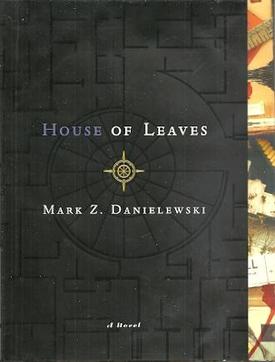
AxemRed fucked around with this message at 17:25 on Oct 25, 2012 |
|
|
AxemRed posted:I finally got around to finishing House of Leaves. One of these days I'm going to listen to Poe's Haunted, his sister, both the book and her album are about their father's passing.
|
|
|
|
|
calandryll posted:One of these days I'm going to listen to Poe's Haunted, his sister, both the book and her album are about their father's passing. It's a good album and has long been a favorite in our house.
|
|
|
|
I am currently on a Science Fiction trend and recently finished Ubik by Phillip K. Dick. The novel is set in the 'future' world of 1992 (Ubik was first printed in 1969) where humans have evolved various talents such as telepathy and precognition. Glen Runciter owns an organization that employs 'anti-talents' to block those with talents from corporate espionage and other crimes. Another significant advancement in technology is half-life, where a person can be cryogenically frozen and have their lifespan expanded when they could otherwise not exist. Runciter's wife is in half-life and works with her husband to run their business from this state. Without delving into too much detail, the novel centers around Glen Runciter's employees (in particular Joe Chip, the primary protagonist) and a catastrophic event which facilities various existential questions around life and death. I enjoyed this novel. I think what ultimately appeals to me about these types of stories would be the advancements in the human condition and what positive/negative externalities exist directly because of how society has evolved. It has kind of spurred me onto other Science Fiction, and I am now reading The Stars My Destination (also known as Tiger! Tiger! for non-US folks) by Alfred Bester.
|
|
|
|
pepper bologna posted:I am now reading The Stars My Destination (also known as Tiger! Tiger! for non-US folks) by Alfred Bester. I read this a while back and didn't care for it much. It comes up a lot as one of the best classic sci-fi books but I just wasn't feeling it. I'd like to know what you think of it when you're done.
|
|
|
|
Just finished reading The Gap: The Real Story + Forbidden Knowledge, and the person who told me that TRS contained a good deal of sexual abuse certainly wasn't lying! Thankfully it let up by the end, and that FK was a lot more interesting, especially due to the appearance of the Amnion, as well as the confrontations with Nick's crew, and Morn trying to manipulate Nick. Not a bad read all-in-all, but yeah, I definitely preferred Forbidden Knowledge.
|
|
|
|
The Fault in our Stars by John Green. Poignant, sweet sad, concise. Memorable characters. Beautiful rendition of pretentious teenagerhood. Green writes authentic young adult fiction so if your last YA was Tomorrow when the War Began or Hatchet or His Dark Materials, you'll connect with the way these kids think. Ah.. to be a teenager again. What a magnificently mangled chapter in life. This book reminds me to hold on to anything/everything I have in life and appreciate rather than long for whitewashed perfections. Read this if you want a nice time with lingering heart tugs. -- Next up, The Great Gatsby.
|
|
|
|
|
Just finished the sequel to Beat the Reaper, Josh Bazell's Wild Thing. Was prepared for a letdown based on what I'd heard from other readers but I was pleasantly surprised. The plot is more contrived than the first book but I found it just as funny and engaging.
|
|
|
|
Kekekela posted:Just finished the sequel to Beat the Reaper, Josh Bazell's Wild Thing. Was prepared for a letdown based on what I'd heard from other readers but I was pleasantly surprised. You realize it was just a grown-up Scooby Doo episode, right? poo poo, he literally tells the reader this midway through the book. I have a lot of complaints about the book, but that one I found that kind of insulting. VVV I love Peter/Lionel- I think he's a fantastic character and would have happily read an entire book about him being the cruise ship doctor- but between the contrived reason for him being there, the lame "mystery," and the ridiculously heavy-handed politics (even though I agree with them), I found little to enjoy. Of course, this stuff wouldn't bother me so terribly if I hadn't liked the first one so much. funkybottoms fucked around with this message at 15:52 on Oct 26, 2012 |
|
|
|
funkybottoms posted:You realize it was just a grown-up Scooby Doo episode, right? poo poo, he literally tells the reader this midway through the book. I have a lot of complaints about the book, but that one I found that kind of insulting.
|
|
|
|
Major Isoor posted:Just finished reading The Gap: The Real Story + Forbidden Knowledge, and the person who told me that TRS contained a good deal of sexual abuse certainly wasn't lying! Thankfully it let up by the end, and that FK was a lot more interesting, especially due to the appearance of the Amnion, as well as the confrontations with Nick's crew, and Morn trying to manipulate Nick. Amazing series of books and yeah, the first one is a tad on the brutal side. I recommend the Gap series a lot but warn people that the first book is a) very graphic and horrible and b) not representative of the rest of the series, but serves to initially define some of the characters quite well. The last book gets almost a little Clancy-esque with all the description of strategic moves but is still awesome.
|
|
|
|
Just finished The Yiddish Policeman's Union and The Windup Girl. The former was decidedly better in terms of writing, characterization, and plot. Chabon is just an incredibly imaginative, evocative writer. The Windup Girl had a great post-apocalyptic setting, but the plot got somewhat predictable later on and left me a little flat. Any opinions on any of Chabon's other books such as The Amazing Adventures of Kavalier and Clay?
|
|
|
|
Clayton Bigsby posted:Amazing series of books and yeah, the first one is a tad on the brutal side. I recommend the Gap series a lot but warn people that the first book is a) very graphic and horrible and b) not representative of the rest of the series, but serves to initially define some of the characters quite well. The last book gets almost a little Clancy-esque with all the description of strategic moves but is still awesome. Oh really? drat, if it reaches the point where it's Clancy-esque in that department, I'm reading the right series! I loved the Clancy books, then I'm definitely gonna have to keep reading! (Once I actually find the other books, anyway)
|
|
|
|
More from Partners in Crime. Blindman’s Buff Tommy decides to imitate Thornley Colton, a famous blind detective. He stumbles a bit, literally and figuratively, upon first donning the opaque eyeshade that simulates blindness for him. When a chance encounter at lunch ends up revealing that the Russian spies he last tangled with in The Adventure of the Sinister Stranger are back and out for blood, Tommy’s put in a situation even a detective with two good eyes might have trouble seeing a way out of. This is less a mystery story and more an adventure story. There isn’t really a central puzzle, just a central gimmick built around Tommy’s blind routine, which would only be a very funny joke, if not for the fact that he finds himself up against some very nasty characters before the story is over. Because it is so different from most of the stories thus far, it’s a refreshing break and is quite a bit better than The Adventure of the Sinister Stranger, the previous Russian spy story we’ve had. Christie knows how to get some great humor out of Tommy’s attempts to function while blind and Tuppence’s frustration at the foolishness. The climax, in which a still blindfolded Tommy is faced with a walk through a room with deadly traps on the floor is pretty great and the twist that Tommy has up his sleeve is even better. This isn’t typical Christie by a stretch, but it’s pretty good. DID I SOLVE IT? Well, there’s nothing to solve, unless you count the last minute twist that Tommy’s eyeshade is a fake and that, in fact, he’s only been pretending to be unable to see from the very beginning. Did I see that reveal coming? No. COULD I HAVE SOLVED IT? Well, I suppose there’s a chance; once Tommy and Tuppence get to the restaurant, Tommy does become surprisingly good at deducing what’s going on around him. A particularly sly reader might be able to tumble at that point to the fact that the blindfold is probably a fake. The Man in the Mist Tommy and Tuppence, having just failed spectacularly in their latest case, are lounging about, Tommy still wearing a priest disguise. Who should they chance to meet but Gilda Glen, a famously talented (and infamously stupid) actress? When she asks the pair to stop by her house that evening, Tommy isn’t sure whether she’s looking for the services of a detective or a priest. As it turns out, he’ll be called upon to do the duties of both, as in deliver the last rites to Miss Glen and figure out who killed her. Adding to the atmosphere of tension and terror is a heavy mist that blankets the house; to find out who committed murder on this particular misty night, Tommy will have to keep from getting lost in the fog himself. This is one of the best serious mystery stories in the book. Christie does a good job with her atmosphere, riffing, obviously, on Father Brown. The story treats this murder very seriously and the climax, when Tommy finally puts it all together, is gripping and hints at an idea Christie would revisit some years later in a Poirot novel. One thing Christie was very good at when she wanted to be was finding a way to perfectly encapsulate the darkness of a story with the closing sentence and she does that here. DID I SOLVE IT? No, I don’t think I can count this one. It’s pretty obvious that the main suspect, a hot-tempered young man who’s been jilted by Gilda Glen, and who is the only person seen entering the house during the period of time when the murder happened, is a red herring. He’s clearly innocent. But the identity of the true culprit eluded me. Key to the story is that a policeman on his beat has been watching the door of the house where the murder happens; this is what allows Tommy and Tuppence to believe that O’Reilly is the only person to have entered the house in the proper time frame. But, as Tommy points out, “we forget that policemen are men too,” and indeed, that stolid, likable, rather stupid policeman walking his beat is in fact the killer, an ex-husband of Glen’s who, as Tommy puts it, “saw red.” It’s a great twist and one Christie would return to later. COULD I HAVE SOLVED IT? It’s wonderful to see the blinders you put on when reading a story like this; the great puzzle is that O’Reilly was the only man who had opportunity. Of course, Christie makes it quite plain that the policeman on the scene had opportunity too, only who on earth would suspect him? It’s the puzzle that isn’t one, the instant you become aware of your own blinders: only one man had opportunity . . . except actually, two men did. A great blind spot detective story. The Crackler Tommy and Tuppence lament the lack of an “Edgar Wallace-esque” case in their files. Luckily, Inspector Marriot turns up with just the thing. A daring new gang of counterfeiters is getting their bills out into hot circulation. Scotland Yard suspects the Laidlaws, a high society couple. Thanks to connections, the Beresfords insert themselves into the Laidlaws’ set to try to spot the way the bills are being passed. Tommy, meanwhile, coins a new phrase for a passer of counterfeit bills: a crackler, after the crackle of crisp new bills. Tuppence thinks a rustler would be better, but unfortunately, that one’s already been taken by the Americans. This one is pretty different. If this story is any indication, I wouldn’t care for Edgar Wallace, so there’s one bullet dodged, thanks to Christie’s theory of parody. The story is really too short for it to build any interest, since it doesn’t have a terrifically obvious hook to help it along. The idea of Tuppence being pursued by a younger man is a fantastically amusing one, but the story is so rushed that we don’t even see it happening; it’s only brought up in conversation between Tommy and Tuppence, which is a missed opportunity for sure. And then there’s the frustrating fact that the villain of the story is obvious from the moment of his introduction. DID I SOLVE IT? You bet I did. The twist is that it isn’t actually the Laidlaws, but rather a member of their set, a boisterous, apparently buffoonish American named Hank Ryder, who hides his criminal cunning behind an idiotic front. He serves mostly as a drunken source of exposition and, as with Inspector Dymchurch in The Adventure of the Sinister Stranger, it’s clear from his first scene that he’s actually the one our heroes are after. The Sunningdale Mystery In an effort to prove his mighty intellect, Tommy tries to prove to Tuppence that he can solve a case simply by poring over newspaper clippings in a café. He brings along some string to play with, a la Baroness Orczy’s The Old Man in the Corner. The case is a strange one, of a man murdered on a golfcourse, after being seen in contact earlier that day in the company of a mysterious woman no one recognized. The police have it down to an embezzlement charge against the dead man having driven him to become involved with some desperate characters. Working together, Tommy and Tuppence first dismantle the case as it appears to be and then discover the secret behind that mysterious conversation with a strange woman. This is, for my money, the best serious mystery story in the book. It’s got a clear narrative to begin with and as Tommy and Tuppence work together, we get to see Christie writing them as a real team, which is a marvel to see. Their conversation sounds absolutely real and the ways in which an idea had by one will be taken to the next step by the other flows perfectly. It’s easy to see that these two really are partners, not a detective and a sidekick. Generally in these stories, it’s one or the other who solves the case, but in this one, the solution, once arrived at, can only be called a joint solution. Tommy and Tuppence come absolutely alive in this story; it’s easy to see how they challenge each other and complement each other as well and it’s easy to see why they’re together and doing what they do. Add to all this the fact that the solution is a right corker, a brilliant “hidden in plain sight” revelation and you have a full-on classic. DID I SOLVE IT? Nope, can’t pretend that I did. The solution is far too intricate to attempt to explain her, but suffice it to say that it’s delicious. The kind of solution we go to Christie for, if you know what I mean. COULD I HAVE SOLVED IT? Oh, she plays fair, so yes. It’s another one of those delirious moments when you slap yourself in the forehead. At one point, there’s a substitution, one man pretending to be another on the golf course and Christie flatly tells us that witnesses said that the fellow in question began playing like another man, meaning that his game went to pot. We leap to conclusion that the victim was upset by his conversation with the mysterious woman in brown, instead of taking the language at face value: as Tommy says late in the story, “He was playing like another man, because it was another man.” Oh, man, that’s good stuff. The House of Lurking Death A young woman visits Tommy and Tuppence because of an attempted poisoning. The Beresfords make plans to visit her at her estate the next day, but when they rise the next day, it’s to the news that many people, including the young woman herself, have died during the night of “food poisoning.” Never one to let a job go, and feeling a little responsible, the Beresfords investigate. Were the deaths a judgment from God, as one of the housekeepers avers, or is it the hand of man that held the bottle marked poison? This time it’s Tuppence who figures out the mystery, but will the solution be enough to deter another judgment that’s on the way? This is a good one. Christie goes after it with some gusto and the shocking revelation at about a third of the way through the story that there have been multiple deaths is a stunner. The rest of the story isn’t up to that bravura opening, but it certainly tries. Why, yes, there is a religious fanatic who is forever shouting things like, “I am the flail of the Lord.” DID I SOLVE IT? Um, nah, not really. COULD I HAVE SOLVED IT? Tuppence quite clearly points out two pretty big clues when she does her sum up. That means yes. Agatha Christie
|
|
|
|
Just finished 'The Stranger' by Albert Camus and passed it on to a friend. I've been interested in Camus and absurdism since first hearing Titus Andronicus months ago, but never got around to his works. It's a quick read, but very profound.
|
|
|
|
Wronkos posted:Just finished 'The Stranger' by Albert Camus and passed it on to a friend. I've been interested in Camus and absurdism since first hearing Titus Andronicus months ago, but never got around to his works. It's a quick read, but very profound. If you're interested in absurdism, I'd recommend searching for some Eugene Ionescu, a terribly overlooked figure of the movement. He was mainly a playwright, but his works should be accessible in any form, especially if you speak French (I'm not sure how extensively his works were translated into English). Personally, I really love L'Impromptu de l'Alma and La Leçon.
|
|
|
|
steinrokkan posted:a terribly overlooked figure of the movement
|
|
|
|
This Book Is Full Of Spiders by David Wong. 3.5 stars This was a more cohesive novel than the first, but definitely not as scary. Overall a good story, but it all fell apart in the end, with many things going unexplained, and subplots being dropped left and right. Tragically, my favourite character died in the final chapter.  The epilogue had one of the best laughs of the whole book though, when a certain secondary character's portrayal for the whole book comes into question.
|
|
|
|
I just finished Koji Suzuki's Ring in an attempt to read something spooky for Halloween. I've never seen any of the films and went in knowing next to nothing about it aside from the stuff I picked up from cultural osmosis when the American film was breaking (wells, girls, videotapes, etc). I expected something very creepy and unsettling, with a pervasive feeling of something mundane being just plain wrong (such as the portion of House of Leaves where Karen finishes building the bookshelf, only to have the books topple over into the portion of the house that had just expanded; that shook me up for reasons I still can't place). The only portion of the book that came anywhere close to being creepy was when Asakawa was in cabin B-4 for the first visit, discovering the guestbook and tape. In the end, much differently than I expected, I got a halfway decent mystery story with a race against time with some mildly creepy elements thrown in but a predictable twist ending. I'd give it a 3/5 if I had to rate it. It's not the most amazing book I've ever read, but I enjoyed it. I'm thinking of picking up the sequels (Spiral and Loop) when I have some spare time in the next few months. Are these solid reads as well or am I headed for disaster?
|
|
|
|
The Signal and the Noise: Why So Many Predictions Fail-but Some Don't by Nate Silver. A look at mostly unsuccessful predictions and the common factors that lie beneath them. There's nothing really new here if you're even somewhat familiar with the Tversky/Kahneman-inspired pop cog-psych literature from the last few years, but entertainingly written with well-chosen examples. I didn't learn much, but that didn't stop me from polishing it off in just three nights of reading.
|
|
|
|
The Casual Vacancy by JK Rowling. I honestly can't say I was disappointed since I didn't have high hopes in the first place, but this book is a goddamn mystery. What we have is 500 pages about two-dozen something people being complete and utter dicks to one another, and not in the entertaining GRRM sense. Their lives all get worse and the author has to drown a baby to squeeze out some pathos. There are about dozen sub-plots that don't go anywhere and Rowling outdoes Bakker in the Too Much Information department. A five-year old dropping her pants is akin to Father Christmas. I'm left wondering if this was supposed to be a satire.ptolpa posted:I finished The Second Empire, Paul Kearney The last book is solid, though it loses a lot of momentum since it takes place 20 years later. The only real complaint I can lodge at it is that it should have been two books; all the major deaths and big revelations happen way too fast. Inspector Gesicht fucked around with this message at 07:44 on Oct 31, 2012 |
|
|
|
Finished Misery by Stephen King last week. I really liked it and it's probably the best King book I've read so far. He's not farting around and I feel the story isn't as bloated as The Stand, for example. Reading Metro 2033 by Dmitrij Gluchovskij (sp?) and it's okay. Not really my kind of book but I'm gonna finish it anyway. Next in line is Thief of Time by Terry Pratchett.
|
|
|
|
The End: The Defiance and Destruction of Hitler's Germany, 1944-1945 by Ian Kershaw. Starts with the assassination attempt on Hitler's life in July 1944, and tracks the way the regime responded to that and how they kept things going for the next year until the very end of the war. Attempts to answer the question of why the Germans kept fighting even after the result of the war became a foregone conclusion (apparent to everyone except the most delusional for at least a year before the end of the war) and how the German people functioned amid all the chaos and disruptions (surprisingly well, at least until April 1945). The author shows how the assassination attempt had the effect of strengthening the regime's control over the army and German society. The Nazi Party had eliminated the majority of their enemies before the war and now had free reign to stamp out the rest of them even more ruthlessly—opponents of the war and realists who wanted to end it in order to avoid the complete destruction of the nation had no avenue to pursue this owing to the Nazi's complete control of German bureaucracy and their willingness to execute "enemies" of the regime. There were other factors that held back attempts to end the war early (fear of surrendering to the Soviets, Hitler's belief in victory or destruction with no options in between, German bureaucrats' and party functionaries' sense of patriotic duty which contributed to an unwillingness to change their routine), but it seems to me like the Nazi Patry's complete control of leadership positions in the press, the police, and civil instituions pretty much ruled out any possible options to "fight to the death".
|
|
|
|
Inspector Gesicht posted:The Casual Vacancy by JK Rowling. I honestly can't say I was disappointed since I didn't have high hopes in the first place, but this book is a goddamn mystery. What we have is 500 pages about two-dozen something people being complete and utter dicks to one another, and not in the entertaining GRRM sense. Their lives all get worse and the author has to drown a baby to squeeze out some pathos. There are about dozen sub-plots that don't go anywhere and Rowling outdoes Bakker in the Too Much Information department. A five-year old dropping her pants is akin to Father Christmas. I'm left wondering if this was supposed to be a satire. I finished this book and had the opposite reaction. It's English Lit in the vein of Middlemarch and Howard's End pulled into the 21st Century. I didn't necessarily like all the characters, but I could at least understand them. Their motivations and desires were laid out plainly, and the fun, for me, was reading the clashes that occured when those desires crossed paths. Rowling's world-building is still on display, just in the form of naturalism over fantasy. It verges near over-the-top territory at times, but never crosses that line in my view. It reminds me most of a more commercially-written A.S. Byatt novel. The ending might be a bit much, but it holds true to her theme of "poor people get hosed no matter what." It's not a pleasant read, but it could cause some of Rowling's fans to question their privilege. Though, looking at reviews at goodreads and other places, that doesn't seem to be happening. Even without that aspect I managed to fly through the book in a few days because I was caught up in the lives of the characters. The Twelve by Justin Cronin. Probably my biggest disappointment this year. I loved The Passage, but this sequel is just...boring. And when it's not boring, it's aimless. I don't think I've ever used the word "overwrought" when describing something before, but it sums up The Twelve perfectly. Overwrought and bloated. I thought the first book flowed well, had enough characters to feel "big" without being padded, and I was flipping through the pages dying to know what would happen next. I also enjoyed the language and thought the leaning-towards-literary tone was a good fit. In the second book, there's just too much of everything and it feels slow and padded. We meet plenty of new people who are just there to get killed, the novelty setting and adventure feel of the first book has given way to the "excitement" of infrastructure building and the inner workings of organizations. Characters sit around bored for fifty pages or so, remembering stuff from the first book or wondering "is this how it ends?" (seriously, that sentence or the statement version "so this is how it ends" pops up about ten times in the first 200 pages) then something somewhat exciting happens, then they're bored again. Maybe the point is that the end of the world will be boring? I don't know. And the writing. It worked in the first book, but in The Twelve it just gets annoying. Every new scene is setup, and setup, and setup, and the language veers into preciousness and sentimentality a little too much. I don't know if there wasn't time to edit this thing properly or what, but there are annoying flourishes that don't add anything to the scenes or narrative all over the place. You just want to get on with the scene but the author is too busy describing just how dead and depressing and horrible the situation is, or how someone goes about their job in ultra-detail. Yes, Mr. Cronin, I'm sure you did plenty of research, but I don't need to see it all. And this is all before the virals go and recreate the loving holocaust (late-ish plot point about what happens to people who are captured). Like there's no other way this could be handled in the narrative? The worst part is that it's not even shocking, it's just...boring. Like, that's really the best thing you, the author, could come up with? Ugh. It's the god-drat vampire apocalypse! Think of something new! There are still some well-written scenes, but they're surrounded by hundreds of pages of filler. Too much world-building, too much exposition, not enough action. Where Casual Vacancy is efficient in it's world and character building, The Twelve is plodding. Too much minutia. This book could easily have 200 pages shaved off and still tell the same exact story. As it is, it's a 566 page slab of fat with a couple bits of Filet Mignon hiding inside.
|
|
|
|
Managed to finish five books this month. The Winter King by Bernard Cornwell, a realistic arthurian legend? Instead of Arthur fighting demons its mostly warlords of 5th-6th century England, which makes the Gaza strip look like the most peaceful place on earth. There is no magic in this world but Merlin believes it can be brought back if some ancient relics are found. Many people though are wary of Merlin, because of his reputation as a druid. Knowledge in this era could pass for magic, that would explain Merlin's reputation. Also Arthur is no king but a warlord, one who is unlike any other, he doesn't seek fame or land but peace for his nephew(a baby but the king)'s kingdom. The story is told through one of his Companions, many years after the events, I think it's led to believe Arthur might be dead when Derfel is retelling the story. Derfel starts out to tell Arthur and England's story but most of it is his adventure under Arthur and without. Derfel turns out to be a more interesting character than Arthur himself, goes from a boy to a fearless warrior to a priest. In one phrase, I would say its the story of a kingdom falling apart from everywhere. The story goes on to tell why thats happening and how to stop it. Would recommend the book to anyone who likes that time set. Arthur does do one very strange thing, that seemed very out of character, that annoyed the hell out of me. The Haunting of Hill House by Shirley Jackson, a good horror story this. Don't know if this started the trope of strangers in a haunted house. Slow start and told through the pov of a very awkward person, Eleanor, made for a hard beginning. But it does pick up and towards the end you don't want to be inside a structure that may resemble a house. Also towards the end, its hard to tell what is actually happening and what's not. Are these conversations really happening? Was someone really knocking at the door? Eleanor goes batshit crazy but that might not be completely true because if you pay attention at the beginning you know something is not right with Eleanor. Good read and not a long one but the haunting is never explained, or maybe it had something to do with the Sisters, I don't know, that part annoys me in horror, when they don't explain the haunting or whatever, it being random seems rather shallow to me. The Best Of Sherlocks, collections are always fun to read when you want something to read before sleep or just quickly. I always liked Sherlock Holmes before but now...I don't know. His deductions are always perfect, even when hes wrong its because he intended too. This collection didn't even include some of the best Sherlock Holmes stories such as the Hounds of Baskerville. Not that good. Mistborn: The Final Empire, just a few things to say. Like everyone, enjoyed the hell out of this fantasy world/story. Magic system is easy to understand but well fleshed out. Best thing is the ending, last 100 pages or so will seem like 50 page at most. Can't wait to read the sequel. A Storm of Swords, first ASoiaf book read without watching the tv season before. Amazing book, heard this the best one in the series and from the three I have read so far I would agree. I love this series, clearly or else I wouldn't have read this far. One complaint I had is, sometimes nothing seems to happen for a couple chapters. That was definitely put to rest in this book, nearly every chapter had something some major happening or a payoff in some way which the first two books lacked. I hate reading unfinished series, the wait is unbearable, don't think I'll be able to wait with RR's pace. Still going to wait till next one is out before continuing this series. Thankfully I have large backlog, should keep me away. Was a good reading month for me, was hoping to read more horror but It is a long long book. I read a short story from Asimov, The Last Question, was expecting more science but it ended being more about anthropology and existentialism.
|
|
|
|
Ulio posted:The Haunting of Hill House by Shirley Jackson, a good horror story this. Don't know if this started the trope of strangers in a haunted house. Slow start and told through the pov of a very awkward person, Eleanor, made for a hard beginning. But it does pick up and towards the end you don't want to be inside a structure that may resemble a house. Also towards the end, its hard to tell what is actually happening and what's not. Are these conversations really happening? Was someone really knocking at the door? Eleanor goes batshit crazy but that might not be completely true because if you pay attention at the beginning you know something is not right with Eleanor. Good read and not a long one but the haunting is never explained, or maybe it had something to do with the Sisters, I don't know, that part annoys me in horror, when they don't explain the haunting or whatever, it being random seems rather shallow to me. I think the genius of the book is it doesn't explain. Look at how great the original movie was (which didn't explain) in comparison to how bad the remake was (which did explain). Sometimes it is scarier not to know what is knocking at the door.
|
|
|
|
I intended on watching one of them, so I guess I know which one.
|
|
|
|
Ulio posted:I intended on watching one of them, so I guess I know which one. The remake has one of the most unintentionally hilarious death scenes ever. Owen Wilson gets his head bitten off by a giant stone lion. I laughed and laughed and laughed.
|
|
|
|
Ulio posted:I intended on watching one of them, so I guess I know which one. The Robert Wise (he directed movies diverse as the Sound of Music. the first Star Trek movie, Andromeda Strain, and West Side Story to name a few) version is called the Haunting (1963). I consider it to be one of the best scary movies of all time. It really relies on things happening off screen to increase tension. Rogue1-and-a-half posted:The remake has one of the most unintentionally hilarious death scenes ever. Owen Wilson gets his head bitten off by a giant stone lion. I laughed and laughed and laughed. The remaike will go down as one of my biggest disappointments movie wise.
|
|
|
|
dokmo posted:The End: The Defiance and Destruction of Hitler's Germany, 1944-1945 by Ian Kershaw. Starts with the assassination attempt on Hitler's life in July 1944, and tracks the way the regime responded to that and how they kept things going for the next year until the very end of the war. Attempts to answer the question of why the Germans kept fighting even after the result of the war became a foregone conclusion (apparent to everyone except the most delusional for at least a year before the end of the war) and how the German people functioned amid all the chaos and disruptions (surprisingly well, at least until April 1945). This sounds like a good read I might pick this one up
|
|
|
|
Rascal_Rockhog posted:Finished Misery by Stephen King last week. I really liked it and it's probably the best King book I've read so far. Yeah, I thought it was great and was actually just thinking about it after the latest episode of American Horror Story.
|
|
|
|
Finished Dune Messiah and Children of Dune a while ago. It took me a few reads and a long time to even warm up to Dune, which I appreciate much more now, but these two just get absolutely crushed under their own weight. Messiah is particularly egregious about how badly it manages to completely ignore greater themes which were so prevalent in Dune. Theres lots of sequels that do that, but not only does it ignore what made the predecessor great, it never really attempts to even go off to the beat of its own drum. It just sort of meanders around and never successfully navigates around the wall of bullshit put up by the Ghoala, Bene Gesserit, etc. Children manages to be a much more engaging book, but again, loses itself about halfway in under its own weight. It doesn't even do a half-assed effort to explain why some of the major plot points even are major plot points (Jacurutu I also read The Lies of Locke Lamora which was a completely awesome book. The few action scenes weren't terribly well written, but I can forgive that because I lost count of how many times I had a big dumb goofy grin on my face reading the shenanigans the Gentleman Bastards get up to. If you like heist movies, and have any sort of tolerance for a low-fantasy world (no orcs or elves here), you need to read this.
|
|
|
|
Just finished up The Fountain Head which I really enjoyed. I also finished up A Storm of Swords (Game of Thrones Book 3) which I thought was absolutely fantastic. There were three moments in that book where I actually had to stop reading because I was so shocked.
|
|
|
|
The Girl with the Dragon Tattoo, Stieg Larsson (4/5): I really liked this book, but I am surprised it got so popular. The early parts of the plot are fairly dense* and there is no immediate payoff to the events that unfold. I will chalk it up to good character development**. I'm glad I stuck with it and I will definitely read the remainder of the trilogy. *The book opens with a magazine publisher losing a libel case against an industrialist, with the facts leading up to the lawsuit being extensively detailed. I can't believe so many people sat through that. **It was smart of Larsson to have the story unfold around two distinct characters simultaneously. If I was reading about Blomkvist alone, I doubt I would have carried on. The development of the Salander character, and the obvious fact that she would somehow become entangled with Blomkvist, made it worth reading. Born to Run: A Hidden Tribe, Superathletes, and the Greatest Race the World Has Never Seen, Christopher McDougall (4/5): This book explores the human ability, unique among animals on this planet, to routinely run extremely long distances. The narrative jumps between American ultra-runners and the reclusive Tarahumara Indian tribe in the Mexican Copper Canyons. I found this book to be really inspiring. I am a former competitive runner and I had gotten away from the sport for years. This book got me back to running for the pure joy of it. In the Garden of Beasts: Love, Terror, and an American Family in Hitler's Berlin, Erik Larson (4/5): This is about the career of the American Ambassador to Germany, William Dodd, in the years leading up to WWII. For anyone who has ever wondered how the Holocaust could have happened, this is a particulalry instructive book. It's amazing how Hitler's ascent went unchecked, despite so many people being uneasy about the man and his team. Great read. Wyatt fucked around with this message at 17:21 on Nov 17, 2014 |
|
|
|

|
| # ? May 12, 2024 16:55 |
|
Enigma89 posted:I also finished up A Storm of Swords (Game of Thrones Book 3) which I thought was absolutely fantastic. There were three moments in that book where I actually had to stop reading because I was so shocked.
|
|
|





















